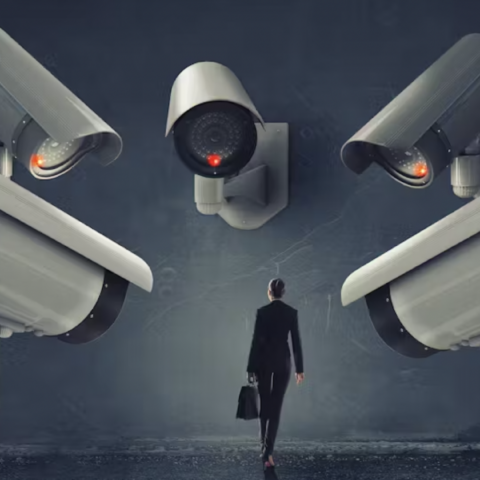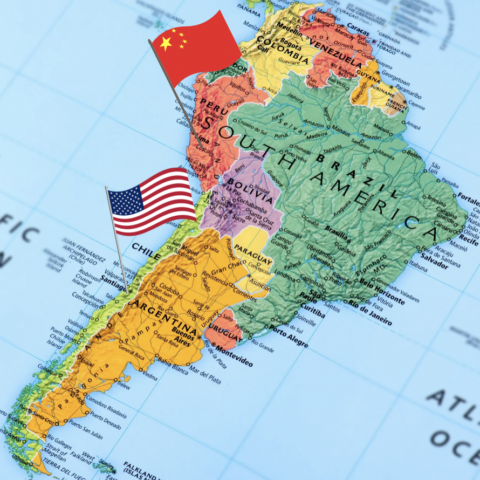By: Holly Boggs
There’s a foreign country with a government consisting of two competing ideological groups who represent the needs of different sectors of society. They bicker incessantly and slow-down decision-making processes to a sluggish, sometimes impossible rate. Sound familiar? One huge discriminating factor helps narrow down the options significantly: it is not a democracy. It is in fact Communist China, a country mired in criticisms of authoritarian-style governance, political corruption, and minimal public participation.
A common paradigm in international relations, the human needs theory, first created by UGA Professor Emeritus Dr. Han Park, insinuates a correlation between economic development and democratic initiatives within a country. Human needs theory is predicated on the assumption that with an increasingly economically savvy and knowledgeable middle-class comes more demands for political participation. It comes as no surprise then, that scholars have been keeping close watch on the Chinese government and watching for any signs of democratization.
The Chinese Communist Party (CCP) enjoys the privilege of being the oldest and most powerful political party in the world. Its dominance is literally written into the constitution of the country, and its power is considered superior to that of the Chinese government itself.
Though this one-party system is a fundamental aspect of modern-day China, it has not gone without revision. The original individually-led, strongman party under Mao Zedong’s leadership is almost entirely unrecognizable in the modern-day CCP. The power of the party is now a much more collective entity, and a widespread body of representatives makes decisions and elects officials.
In recent years, the party has split off into two competing factions. On one side of the arena, there is the populist coalition. Its leaders typically come from less-privileged backgrounds and therefore cater to the needs of vulnerable social groups such as farmers, migrant workers, and the urban poor. On the other side there lies the elitist coalition, whose leaders typically come from the economic powerhouse coastal cities. Their voices and decisions usually represent the will of Chinese entrepreneurs. These two competing parties serve to check and balance the system of governance. It is in the interest of both sides to co-operate and put forth the image of a united party, so maintaining a balance of power between these factions is critical to limit dissidence from the coalition by either side. That being said, there still exist competition and disagreements within decision-making processes of the country that draw-out and complicate policy-making procedure and eventually lead to deadlock.
Even though these new developments in the political governance of communist China highly resemble the procedure of democratic United States, the Chinese government cannot so easily be written-off as a representative government. They have recently been reasonably responsive to the needs of the people without a doubt, but assuming this will last forever is a huge mistake. According to the findings of Tony Saich at the Harvard Kennedy School of Government, 80-95 percent of the Chinese people were satisfied with their central government. A significant factor in the approval of the people derives from the economic expansion the Chinese people have been experiencing. When people have their economic needs satisfied, their dissatisfaction with government tends to decrease. With such an unprecedentedly high vote of confidence by the people, the government does not feel threatened and therefore would not impose overly intrusive laws. Their focus shifts from the maintenance of power to the appeasement of the people’s demands, thus creating this appearance of an almost democratic-style responsive government. But just as the Communist Party evolved into a collective, representative body, there is nothing stopping it from devolving back into an authoritarian regime. The major difference between U.S. democracy and China’s form of communism is that the U.S. government has codified laws which limit the powers of government while the Chinese government has the choice to play however large a role it wishes in society.
In his book, “The Origins of Political Order,” well-known political scholar Francis Fukuyama refers to this obvious flaw in Chinese government as a “bad emperor” problem. While a good emperor under any form of leadership will most likely help the country prosper, how do you make the emperor go away if and when he turns “bad?” Although Chinese government at the moment may be responding to the people’s needs, there is no way under the current communist regime to ensure that this will last.
All it could take is prolonged domestic unrest or the waging of a new war for the political environment to explode and produce another strong-man, oppressive government. This sort of oppression was seen in the 1980s as the people began to develop a taste for political participation but got too bold at Tiananmen Square. The government quickly stepped in and demonstrated their superior force by killing thousands of protestors.
Although the Chinese political system is without a doubt becoming more and more similar to the United States, nothing is set in stone. And while some may theorize that the future holds the potential for a Chinese style of democracy, this potential is very contingent on a vast network of internal and external forces working together. Any one turn in events might spoil the possibility of a democratic transition in the state for years to come.

